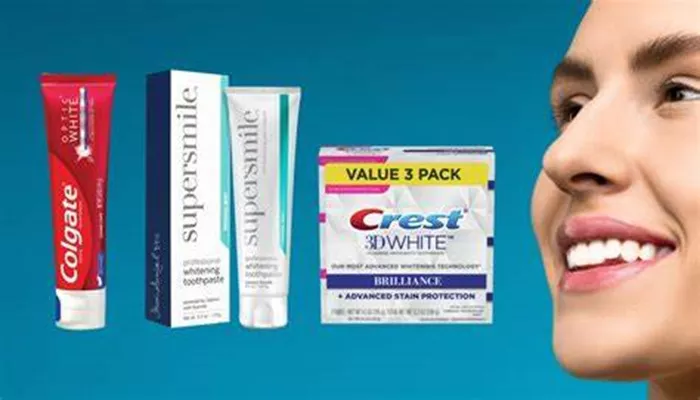A dentist has cautioned that using whitening toothpaste in hopes of achieving a brighter smile might actually have the opposite effect, leading to yellowing and increased tooth damage.
In a TikTok video that has garnered over 2 million views, the dental expert explained that whitening toothpastes do not truly whiten teeth. While they may initially create a whiter appearance by removing surface stains, the abrasive ingredients in these products can wear down the enamel over time, making teeth thinner, more sensitive, and yellow.
This occurs because the enamel, which protects teeth, is gradually eroded, exposing the underlying dentin—a yellow-tinted layer of the tooth. The post, shared by the TikTok account @rifkindental, prompted many viewers to reconsider their use of whitening toothpaste and question what they should do instead.
One concerned user asked, “So what do you recommend then?” Others expressed frustration, with one commenting, “At this point, I’m pretty sure we’re all breathing wrong too.” Some also inquired about the safety of whitening strips.
While both whitening toothpastes and DIY whitening kits are popular, they come with significant risks. Whitening toothpastes often rely on mild abrasives to remove surface stains caused by food and drinks, but these same abrasives can damage the enamel. Without sufficient enamel, teeth become more vulnerable to cavities and decay.
Tooth decay is a prevalent issue in the UK, where approximately one-third of adults suffer from it, and three-quarters have had at least one tooth extracted, according to the Oral Health Foundation. Decay occurs when acids produced by bacteria in dental plaque attack the teeth, especially after consuming sugary foods or drinks.
Despite these concerns, toothpaste manufacturer Colgate assures consumers that whitening toothpastes are safe when used appropriately. The company notes that all toothpastes are evaluated for abrasiveness using the Relative Dentin Abrasivity (RDA) score. According to the American Dental Association (ADA), any toothpaste with an RDA below 250 is considered safe, and most whitening toothpastes fall below 200, reducing the risk of enamel erosion.
Some whitening products contain bleaching agents that can genuinely alter the color of teeth. However, in the UK, only licensed dentists are allowed to administer effective whitening treatments. Before using any whitening products, it is advisable to consult with a dentist, as these products can cause tooth sensitivity.
Hydrogen peroxide is a common bleaching agent found in both over-the-counter whitening products and professional treatments. However, the concentration in store-bought items is typically too low to significantly change tooth color.
Higher concentrations, found in dentist-prescribed whitening gels, strips, and pens, are more effective.
It is important to note that some beauty salons offer teeth whitening services, but these can be illegal and dangerous if not supervised by a dental professional. Risks include the potential for bleaching gel to leak onto the gums, leading to blistering and increased sensitivity.
For those considering teeth whitening, the safest approach is to consult with a dentist to explore effective and safe options tailored to individual needs.

